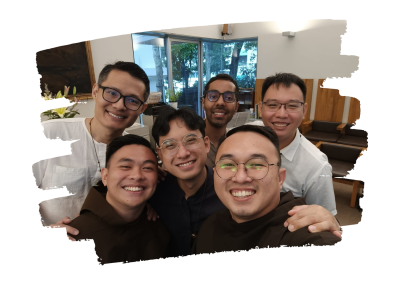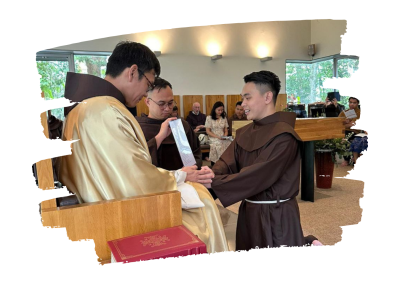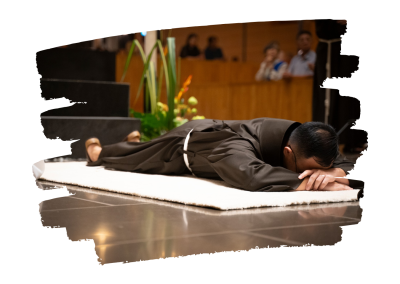THE STEPS
This is a period for you to get to know us and for us to get to know you, through regular meetings with the vocation team. When both parties agree, interviews will be arranged to determine if the candidate will be accepted into Postulancy.
The Aspirancy period is usually one to two years.
The postulancy programme lasts about a year, and is an opportunity for you to deepen your maturity and Christian commitment in various ways. Perhaps one of the newest and most demanding experiences of the postulancy is a real introduction to community life and a growth in the capacity to live in a Christian community of men. As a postulant, you will take part in the activities of the community, and undertake studies in order to become more aware of what is happening in the Church and the world. There are also opportunities for you to be involved in new and challenging ministries.
At the end of the programme, you may return home to consider if you would like to continue in formation. If you decide to continue, you would then apply for acceptance into Novitiate.
Novitiate marks the formal beginning of your life as a Franciscan religious. You will be given the Franciscan habit and taught the life and Rule of St Francis. You will also study the religious vows of obedience, poverty and chastity. As this is meant to be a fairly quiet year of more intensive prayer and reflection, visits to family are kept to a minimum.
The experiences of this special year will help you and those in charge of your formation to discern if you are called to and ready for the next phase, Simple Vows.
The profession of Simple Vows usually takes place at the end of Novitiate. As a professed friar, you will live the Franciscan way of life through the vows of poverty, chastity and obedience for a period of three years or more. These vows are renewed periodically.
All friars in Simple Vows are trained in Franciscan spirituality. Friars who feel called to the priesthood attend classes at the seminary, for approximately six years, in philosophical, biblical, theological and practical studies. Friars who do not seek ordination as priests engaged in various forms of ministry according to their gifts and talents, the needs of the people and the directives of the leaders of the Order. For such friars, professional training will be provided to help them engage in the Church and the world of our present time. In today’s society, the possibilities for ministry are endless and exciting. What is important is that all friars – ordained or otherwise – are brothers with equal dignity and responsibility.
After years of prayerful discernment on your part, the part of the community and those in charge of your formation, full membership is attained by means of taking solemn vows of poverty, chastity and obedience in the Franciscan way of life. After Solemn Profession, friars seeking ministerial priesthood prepare for the Sacrament of Ordination to Diaconate followed by Priesthood. Friars who seek to remain as lay brothers engage themselves in ministries for which they are gifted and trained to serve the Church and the world.



